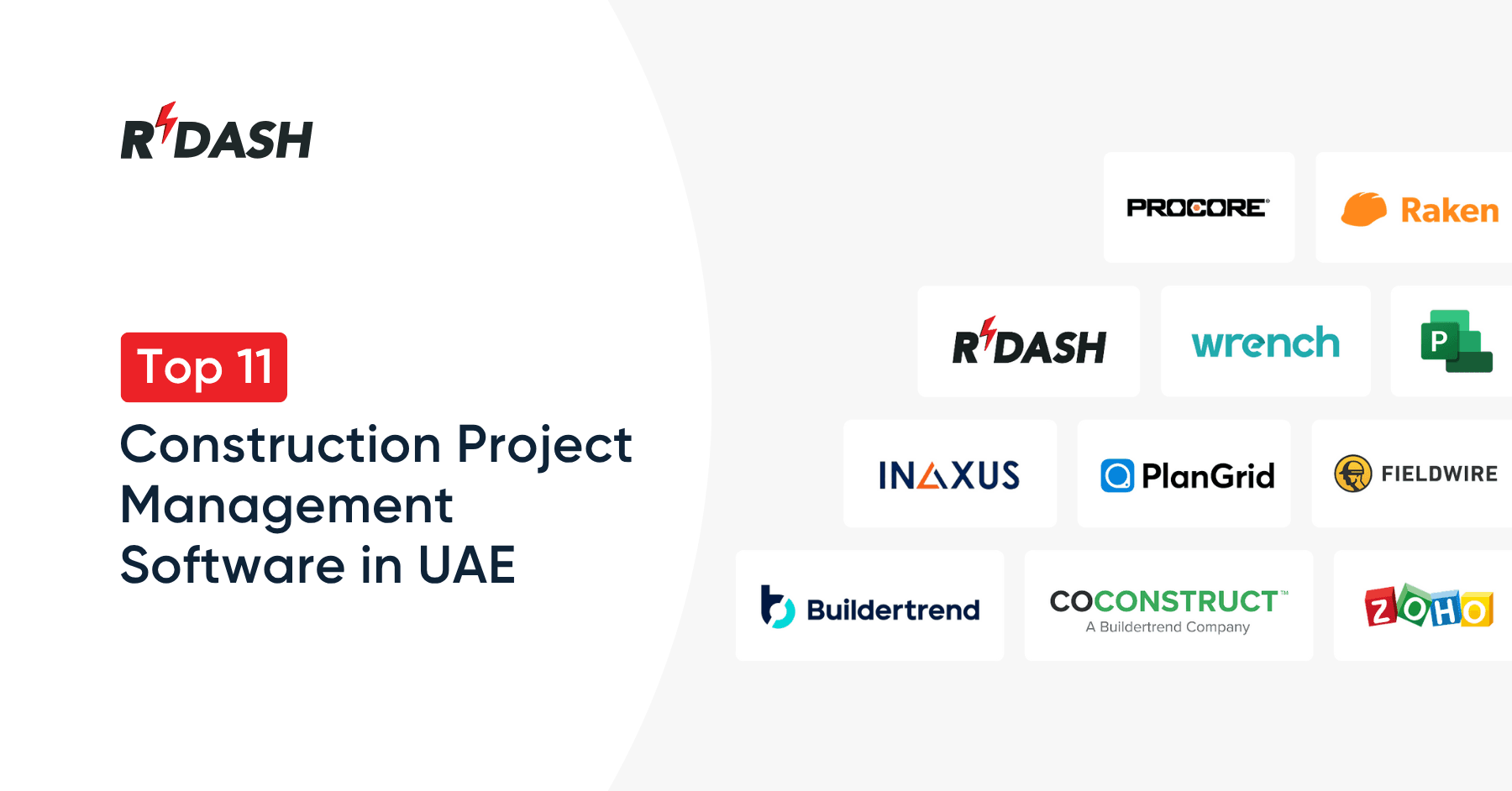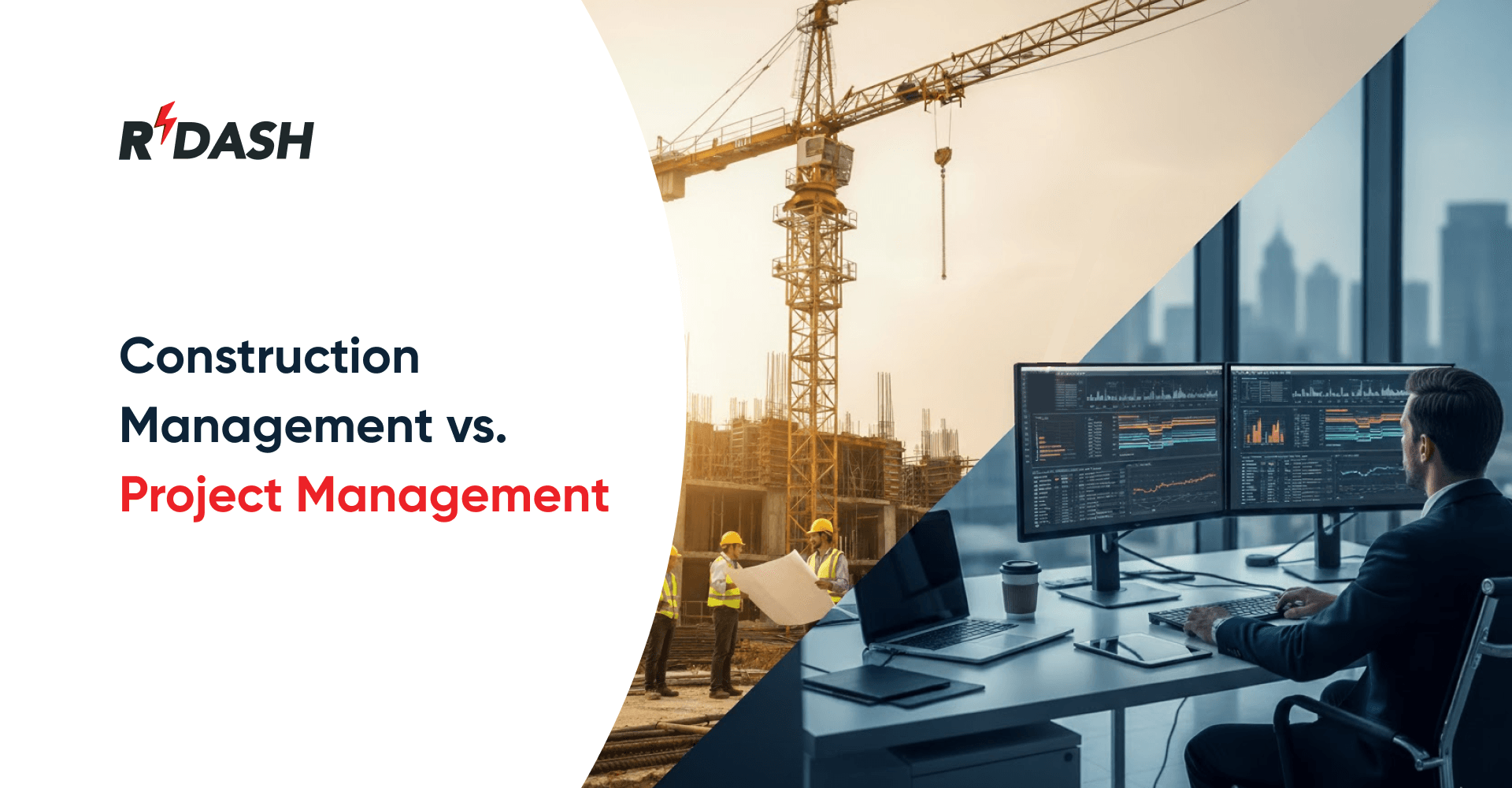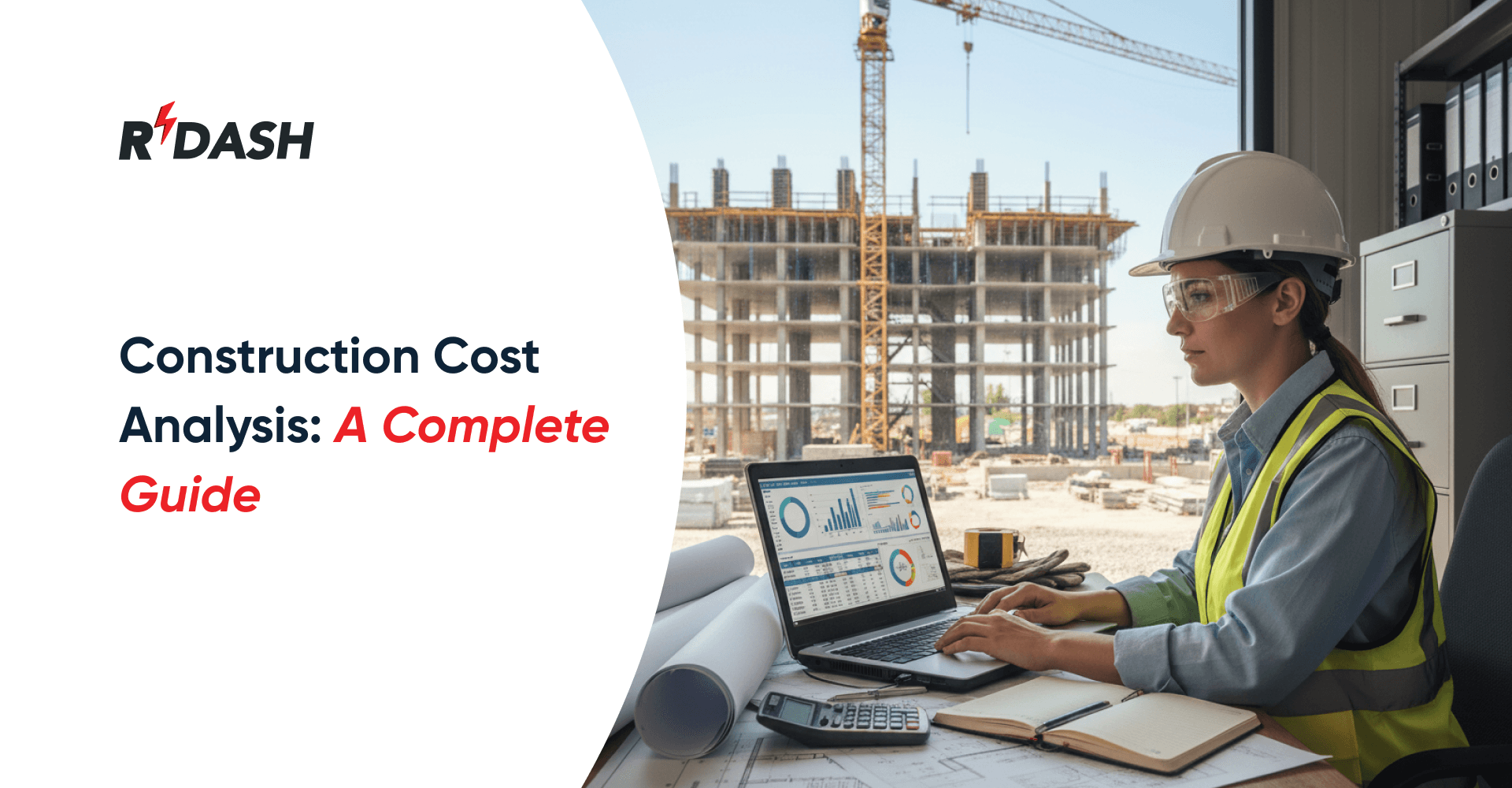What is Construction Project Management Software?
In the world of construction, managing a project can be overwhelming. There are so many moving parts: deadlines, budgets, resources, safety regulations, and coordination between teams. Construction project management software plays a crucial role in overseeing and organizing all aspects of a construction project.
From the early planning stages and scheduling to budgeting and ongoing communication, this software helps streamline tasks. It acts as a central hub that connects project owners, contractors, and all other involved parties. Whether you’re building a new office building or renovating a house, construction project management software makes it easier to stay organized, track progress, and ensure everything runs smoothly.
For instance, RDash is a platform built specifically for the construction sector, offering tailored solutions for project management. By digitizing and streamlining construction processes, RDash ensures that all project stakeholders have the information they need in real-time, making it easier to stay within budget and meet deadlines.
Factors to Consider When Choosing Construction Project Management Software
Selecting the right construction management software is vital to the success of your business. With so many options available, it’s important to find one that fits your specific needs. Below are some key factors to consider when selecting the best software for your construction projects:
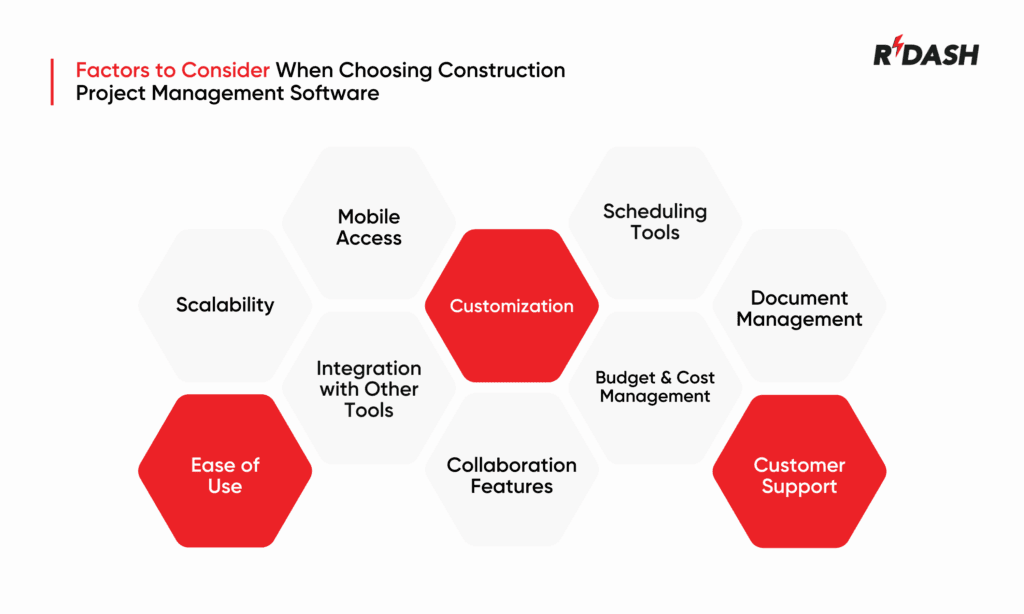
1. Ease of Use
When selecting software, ease of use is crucial. If the software is complicated or difficult to navigate, it will slow down your team and create frustration. Look for software like RDash, which is easy to use and offers an intuitive interface. A simple, clean interface ensures that everyone can adopt it quickly, regardless of their tech expertise.
2. Scalability
As your company grows, the software should be flexible enough to expand with your needs. Choose a construction project management tool that can handle projects of varying sizes and complexities. RDash is scalable and can manage everything from small residential builds to large commercial developments. This flexibility makes it a great option for businesses planning for future growth.
3. Integration with Other Tools
Construction businesses often use several tools for accounting, scheduling, and design. Your project management software should be able to integrate with these other tools for seamless data flow. RDash offers integration capabilities that connect easily with other systems, making it easy to sync your work processes without data silos.
4. Mobile Access
Construction projects are often managed across various locations, meaning project managers and workers need access on the go. Choose software that has mobile accessibility, allowing you to manage projects from any device, anywhere. RDash offers a mobile-friendly interface, so you can monitor progress, communicate with teams, and track resources directly from your phone or tablet.
5. Customization
Every construction project is different, so the software you choose should be customizable to meet your specific needs. Whether it’s adapting workflows or adjusting features for unique project requirements, RDash allows you to tailor the platform to suit your specific needs. This flexibility ensures that your software works the way you do.
6. Collaboration Features
Construction projects often involve multiple teams working together, making collaboration essential. Choose tools that offer real-time communication, document sharing, and task management features to ensure smooth collaboration. RDash fosters collaboration among all project stakeholders—clients, contractors, and team members—by offering a platform where everyone can stay on the same page with up-to-date information.
7. Budget and Cost Management
Managing project costs effectively is crucial to keeping the project on track. A good construction project management software should help you create budgets, track expenses, and forecast future costs. RDash includes robust budgeting tools, such as cost tracking, expense management, and forecasting features, which help ensure your project stays financially healthy.
8. Scheduling Tools
Effective scheduling is fundamental in managing any project successfully. Look for software that offers advanced scheduling tools like Gantt charts, task dependencies, and critical path analysis. With RDash, you can create detailed schedules, monitor task completion, and track milestones, ensuring that deadlines are met and resources are properly allocated.
9. Document Management
Managing documents is a big part of construction projects, from blueprints to contracts and safety protocols. You need software that offers document management capabilities, allowing you to store, track, and share files easily. RDash provides an organized system to keep all your project documents in one place, so nothing is misplaced or overlooked.
10. Customer Support
Lastly, reliable customer support is essential. Whether you need help troubleshooting a problem or require additional training, good customer support can make all the difference. RDash offers dedicated support teams and resources to ensure that your team can make the most of the software.
Top 11 Construction Project Management Software in UAE
In 2025, construction project management software continues to evolve, offering advanced tools that streamline processes and boost project efficiency. Whether you’re handling a small renovation or a large-scale infrastructure project, the right software can make a huge difference in how your team collaborates, tracks progress, and manages resources. Below, we will review the top 10 construction project management software solutions for 2025, starting with RDash.
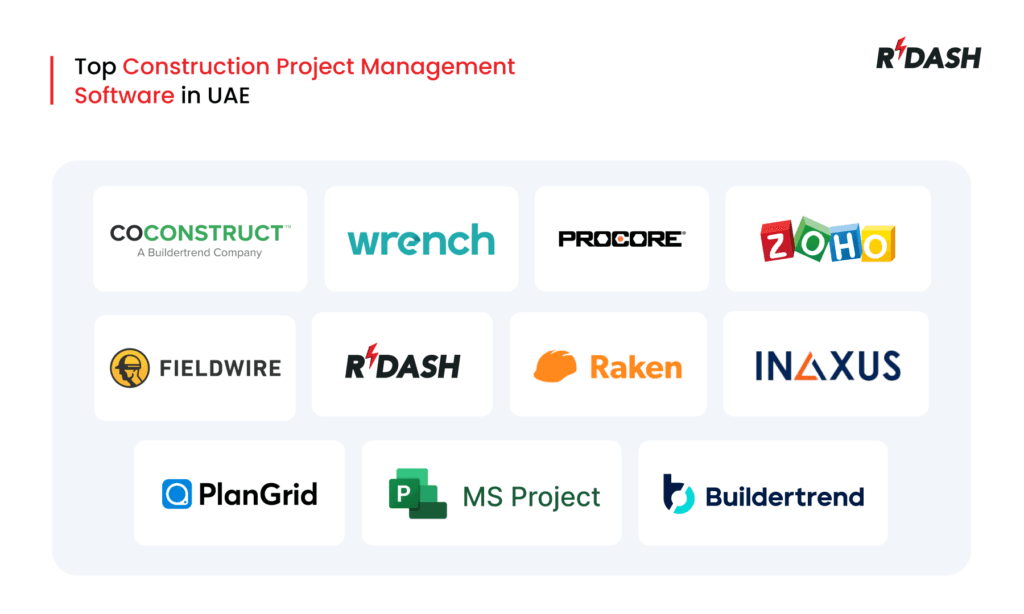
1. RDash
RDash stands out as a comprehensive solution designed specifically for the construction industry. With its intuitive interface and cloud-based functionality, RDash simplifies construction project management, ensuring that everyone, from site managers to project owners, has real-time access to critical project data.
Key Features:
Task, labor, and material management
Real-time tracking and updates
Budget and expense management
Seamless collaboration tools
Mobile-friendly interface for on-the-go access
Why Choose RDash?
RDash is tailored for construction teams, offering customizable templates, real-time collaboration, and strong financial tools. It’s ideal for those looking to improve resource management, stay within budget, and boost team coordination.
2. Procore
Procore is a popular choice among large construction companies. It offers a full suite of features for managing construction projects, from planning and scheduling to financials and field productivity. Its ability to integrate with other platforms makes it a versatile tool.
Key Features:
Project planning and scheduling tools
Real-time communication and collaboration
Budgeting and cost management
Document management
Why Choose Procore?
Procore is known for its scalability and flexibility, making it a great choice for large-scale projects that need detailed tracking and integration with other business systems.
3. Buildertrend
Buildertrend is ideal for managing residential construction projects. It offers features like project scheduling, customer communication, and invoicing, designed specifically for the home building and renovation sectors.
Key Features:
Client and subcontractor communication
Scheduling and task management
Change order management
Financial tools and reporting
Why Choose Buildertrend?
Buildertrend simplifies residential project management with its user-friendly interface and strong client relationship tools. It’s perfect for homebuilders and remodelers.
4. Raken
Raken is a simple, user-friendly construction software that focuses on daily reporting and field management. It helps teams keep track of project progress and daily operations through an easy-to-use platform.
Key Features:
Daily field reports and timesheets
Task and project tracking
Mobile app for on-site use
Photo and video integration for reports
Why Choose Raken?
Raken is great for construction companies looking for an intuitive and mobile-friendly tool to manage field reporting and project tracking on a daily basis.
5. Wrench
Wrench is an advanced construction management software that specializes in managing both the administrative and operational sides of construction projects. It streamlines everything from task tracking and scheduling to inventory management.
Key Features:
Task and project tracking
Real-time reporting and updates
Budget management and cost tracking
Collaboration tools for teams
Why Choose Wrench?
Wrench is perfect for construction businesses that need a complete solution for handling both project management and financial tracking with advanced tools for real-time updates and data insights.
6. CoConstruct
CoConstruct is tailored for custom home builders, allowing them to manage everything from budgeting and scheduling to client communication. It helps users create accurate project estimates and handle any changes that come up.
Key Features:
Project scheduling and budgeting
Client and contractor management
Customizable templates
Integration with accounting software
Why Choose CoConstruct?
CoConstruct is designed with custom home builders in mind. It’s an excellent choice for those needing detailed financial and project tracking tools.
7. PlanGrid
PlanGrid, now part of Autodesk, is a construction software focused on document management and blueprint sharing. It’s perfect for teams that need to manage construction plans, drawings, and specifications in real-time.
Key Features:
Cloud-based document management
Real-time collaboration on blueprints and plans
Issue tracking and reporting
Mobile app for easy on-site access
Why Choose PlanGrid?
If you need to digitally manage blueprints and drawings while collaborating with on-site teams in real-time, PlanGrid is an excellent choice.
8. Fieldwire
Fieldwire is a construction management software designed to enhance coordination across job sites. It’s designed to help teams stay organized with task lists, scheduling, and document management.
Key Features:
Task management and progress tracking
Document sharing and storage
Scheduling and task assignments
Real-time site updates
Why Choose Fieldwire?
Fieldwire is ideal for managing tasks, assigning work, and collaborating with on-site teams. It’s perfect for construction managers who need to stay updated on site activities.
9. INAXUS
INAXUS is an advanced construction management ERP platform designed to enhance project management, streamline supply chain processes, and provide comprehensive financial control. It is built to cater to both small and large-scale construction businesses.
Key Features:
Project and budget management
Workforce and resource planning
Real-time monitoring and reporting
Customizable workflows
Why Choose INAXUS?
INAXUS is suitable for businesses that need a scalable and customizable ERP solution to manage multiple projects, from scheduling to financial management, with detailed reports and insights.
10. Microsoft Project
Microsoft Project is one of the most robust project management tools, offering powerful scheduling, resource management, and reporting features. It’s ideal for large construction projects that need detailed tracking.
Key Features:
Gantt charts for visual scheduling
Resource management tools
Detailed budgeting and reporting
Integration with other Microsoft tools
Why Choose Microsoft Project?
Microsoft Project is perfect for teams looking for a powerful, professional-grade tool with advanced scheduling and reporting capabilities.
11. Zoho Projects
Zoho Projects is a cost-effective project management solution that offers scheduling, task management, and collaboration features. It’s suitable for construction businesses looking for an affordable and user-friendly solution.
Key Features:
Task management and timelines
Real-time collaboration
Document sharing
Reporting tools
Why Choose Zoho Projects?
Zoho Projects is ideal for businesses that need an affordable solution with a comprehensive set of features for task and team management.
Conclusion
Choosing the right construction project management software is crucial for ensuring smooth operations, staying on budget, and meeting deadlines. Each of these platforms offers unique features that can suit different types of construction projects, from residential to large-scale commercial builds. Whether you prefer a specialized solution like RDash or need more comprehensive tools like Procore, there’s a software solution for every construction business in 2025. Select the one that aligns with your needs, and you’ll be on the path to success.

